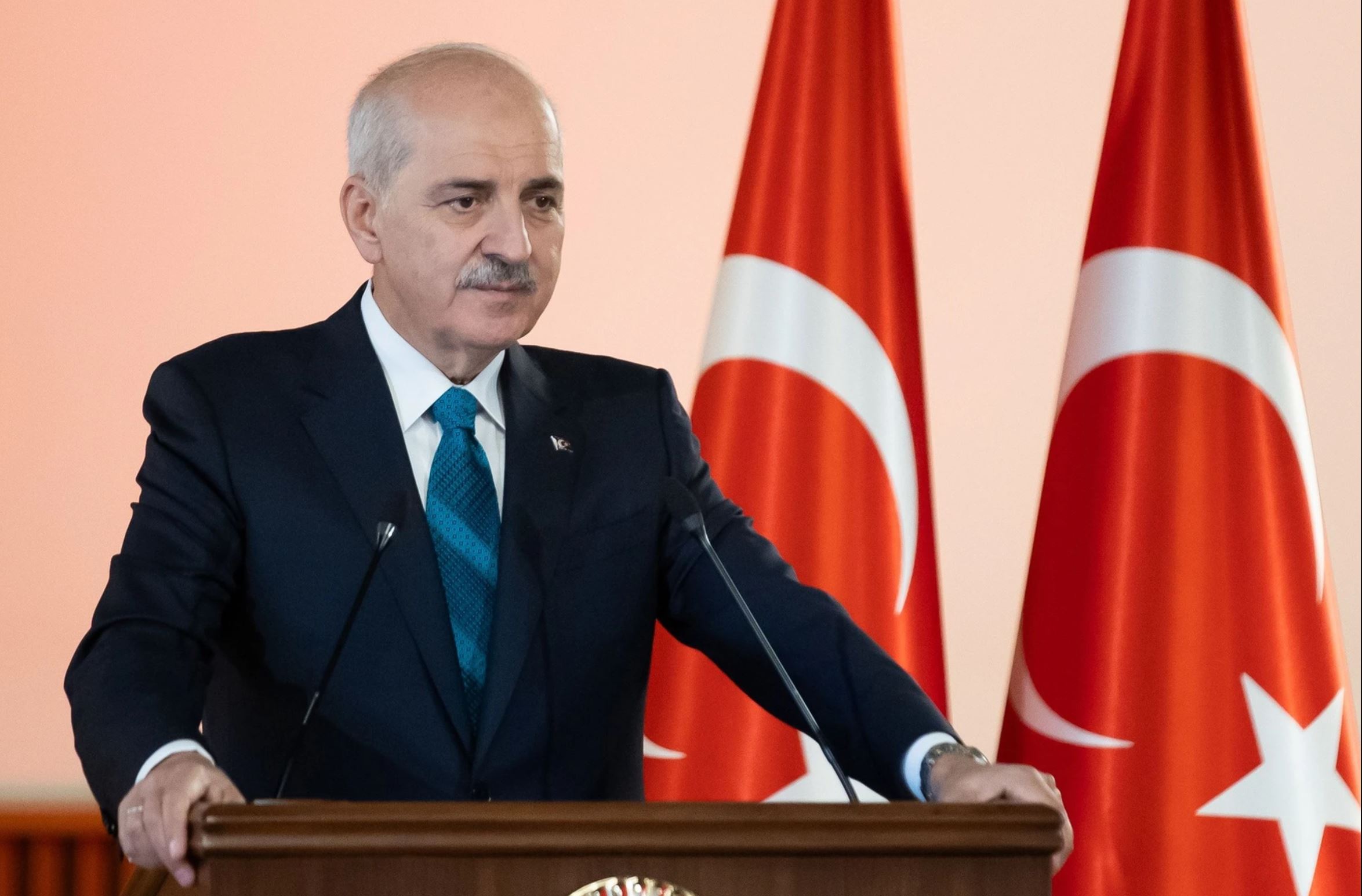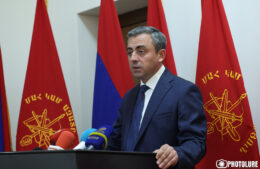During a recent meeting in Geneva, Turkish parliament speaker Numan Kurtulmus reiterated Turkey’s long-standing demand for a land corridor connecting Azerbaijan to its exclave of Nakhijevan through Armenian territory. The corridor, as they are calling it “Zangezur corridor,” would also create a direct link between Azerbaijan and Turkey. This issue has been at the heart of discussions between Turkey, Azerbaijan, and Armenia since the 2020 Nagorno-Karabakh war, which significantly altered the geopolitical dynamics of the region after the Azerbaijani occupation of the indigenous Armenian territories.
Kurtulmus made these remarks during a meeting with Sahiba Gafarova, the speaker of Azerbaijan’s National Assembly, held on the sidelines of the Inter-Parliamentary Union (IPU) session. He emphasized the shared goals of Turkey and Azerbaijan in both regional and global matters. According to the official Turkish account of the meeting, Kurtulmus said the impact of Azerbaijan’s 2020 military “victory” in Nagorno-Karabakh, which he said had “changed the balance in the region” and created new opportunities for the Turkic world.
The proposed “Zangezur corridor”, according to Kurtulmus, could serve as a major economic and political connection that would benefit Turkey and Azerbaijan. Azerbaijan has been pushing for this corridor since its occupation of Nagorno-Karabakh, with Turkey strongly backing the proposal. Turkish support for Azerbaijan played a decisive role in that conflict, and Turkey continues to link the establishment of the corridor to the normalization of its relations with Armenia.
Turkish President Recep Tayyip Erdogan has previously threatened that an agreement on the “Zangezur corridor” would mark the “final step” in resolving the broader Armenian-Azerbaijani conflict. This stance was echoed by Turkey’s National Intelligence Agency head, Ibrahim Kalin, during a visit to Baku. Kalin was also present at a recent meeting between Erdogan and Armenian Prime Minister Nikol Pashinyan in New York, signaling Turkey’s sustained interest in the issue.
On the same day, Armenian parliament speaker Alen Simonyan met with his Turkish counterpart Numan Kurtulmus in Geneva. This meeting was part of ongoing discussions between Armenia and Turkey as both countries navigate the complexities of regional diplomacy and historical grievances. Although relations between Armenia and Turkey have been strained for decades—largely due to Turkey’s refusal to recognize the Armenian Genocide and its support for Azerbaijan—recent efforts have been made to improve ties.
Armenia has consistently opposed the establishment of the so-called “Zangezur corridor,” which Azerbaijan and Turkey have been pushing for since the 2020 Nagorno-Karabakh war. Armenia views the proposal as a threat to its sovereignty, particularly because it involves creating an extraterritorial land route through Armenia’s southern Syunik province.




















